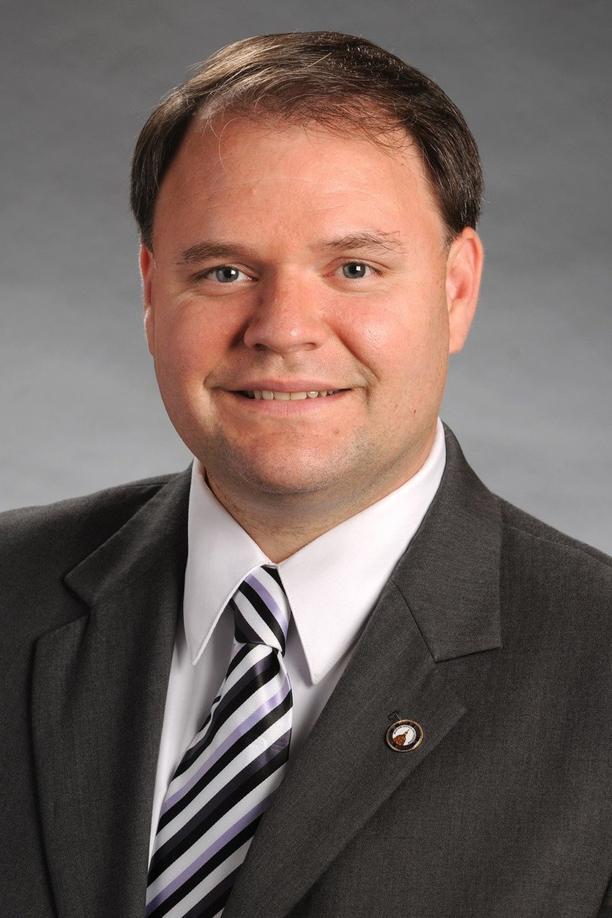|
Legislator wants tougher Hidden Predator Act to pursue sex offenders
By Christian Boone
[with video] When his bill extending the statute of limitations for victims of childhood sexual abuse to file civil claims was signed into law in 2015, State Rep. Jason Spencer (R-Woodbine) knew it didn’t go far enough. The lawsuits that have been filed since the Hidden Predator Act took effect bear him out. While the law allows victims to go after the individuals they say abused them, the businesses and nonprofits that allegedly enabled or covered up predatory behavior have so far avoided any potential financial liability. “What these cases have proven is that we stopped short,” said Spencer, who is proposing an amendment to the Hidden Predator Act that would close that loophole. “It’s our duty to balance the scales of justice for victims.” Just last week, a Cobb County judge dismissed negligence claims against the Boy Scouts of America and First Baptist Church of Gainesville in a suit brought by man alleging he was molested 32 years ago by a former scoutmaster, Fleming Weaver. Robb Lawson, 14 years old at the time the abuse allegedly occurred, says in his suit that officials with the Scouts and the church knew Weaver had molested boys before but failed to take steps to prevent him from doing so again. An investigation by The Atlanta Journal-Constitution found that four years before his allegedly raped Lawson, Weaver had admitted to the then-pastor of First Baptist that he had molested two scouts from Troop 26, sponsored by the church. And the Boy Scouts acknowledged in court documents that they “acquired knowledge that Weaver has been accused of sexually abusing Scouts from other troops from a time period prior to his appointment as Troop 26 Scout Leader” in 1969. But Cobb Superior Court Judge LaTain Kell ruled that the statute of limitations protected both institutions from any liability because Lawson did not offer any evidence that they kept him from pursuing a legal remedy. “We have evidence there was knowledge of the abuse for decades, and collusion to keep it quiet,” said Esther Panitch, co-counsel for Lawson and three other men who have filed civil lawsuits against Weaver. “But there will be no consequences for that behavior.” Spencer said he plans to highlight Lawson’s case and others when presenting his bill before the House Judiciary Committee next year. “I think we can convince them that not holding entities accountable is not serving the cause of justice,” he said. Passage of House Bill 605 is no slam dunk, however. Though they won’t acknowledge it, Spencer said lobbyists representing organizations including the Georgia Chamber of Commerce and the Catholic Church fought hard to maintain the the status quo for business and nonprofits. “We are going against some very powerful interests,” Spencer said. The Georgia Chamber of Commerce denied ever working against Spencer’s bill. “The Georgia Chamber was not opposed to Rep. Spencer's previous legislation, and furthermore believes bad actors and those who knowingly participate in abuse should be held responsible,” the statement read. “We look forward to working with the legislature to ensure the perpetrators of these heinous acts are prosecuted to the full extent of the law.” Before the Hidden Predator Act, victims had only five years from their 18th birthday to file civil abuse claims. Georgia ranked last in the country for civil statute of limitations for child sexual abuse, said lawyer and advocate Angela Williams. “Without the entities being held accountable, the law is not going to have much impact,” Williams told The AJC. Such entities have deeper pockets than individuals and a win against them would be likely to send a message, experts said. The new law allowed victims up to 35 years to confront their abuser in court. The window to file those suits, however, closed on July 1. At least a dozen cases have been filed since the Hidden Predator Act became law. Spencer said opponents of the bill claimed it would lead to an avalanche of frivolous lawsuits. “None of these cases are frivolous,” Spencer said. “A judge would’ve thrown them out if they were.” “We need to take the next step,” he continued. “We can’t allow entities to turn a blind eye to sexual abuse.”
|
.
Any original material on these pages is copyright © BishopAccountability.org 2004. Reproduce freely with attribution.

